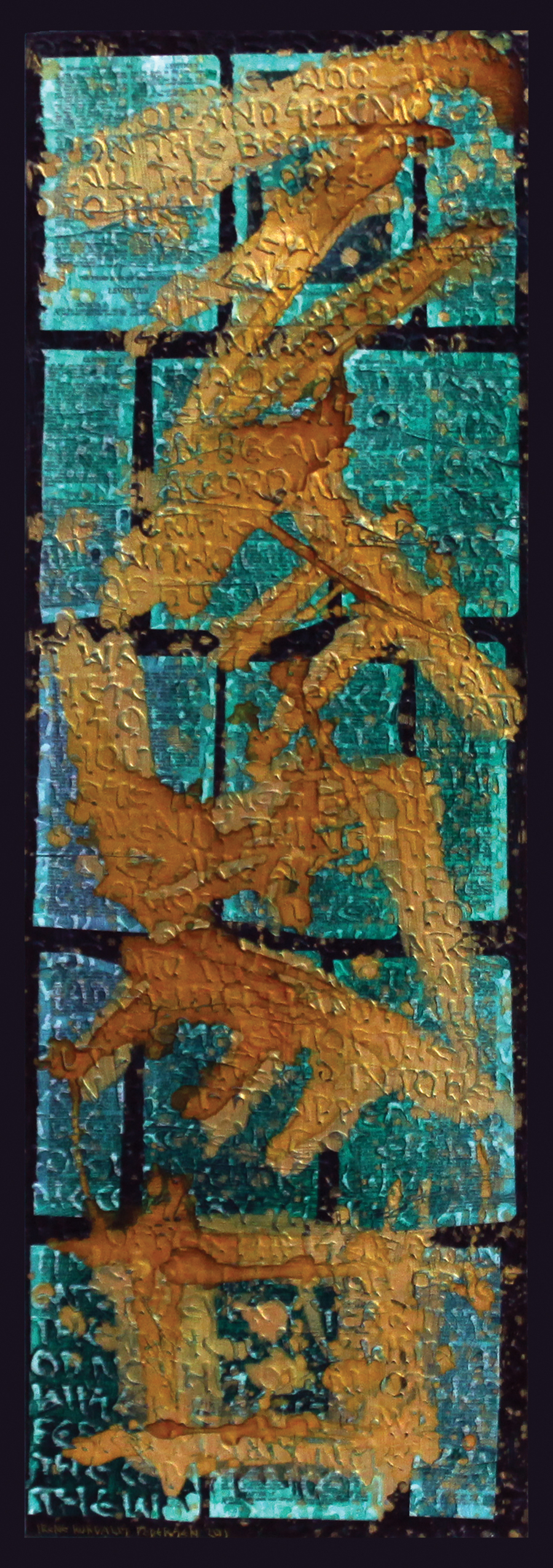Cloud of Witnesses
Lesson Three

In Community with the Living Word
Scripture: Hebrews 1:1–3a; Genesis 1:1–5; Ezekiel 37:1–14; John 1:1–5, 14; Hebrews 4:12–13
Words Are Living Things
I recently read a news story about the changing language on the subject of addiction.
Here’s the quote (from an article on slate.com):

The 2017 version of the Associated Press Stylebook, the biblical guide for journalists seeking clear and precise writing, includes one particularly interesting update on how journalists ought to refer to people with addictions. The AP’s new recommendation now instructs its followers to “avoid words like alcoholic, addict, user and abuser unless they are in quotations or names of organizations”—such as the National Institute on Drug Abuse or Alcoholics Anonymous—and to “instead, choose phrasing like he was addicted, people with heroin addiction or he used drugs.”
Why is it important to change the language? Because the words we use affect how we see the people represented by those words.
Language is more than inactive, static words. Language is living, changing. Words make us feel good or terrible, they inspire or bore, and they also define. The language we use defines the people and things to which those words point.
“Addict” is quite different from “a person with an addiction.” The former (often unintentionally) creates a category of people who engage in bad behavior; the latter creates a category of people who have an illness. Not only do we see the person differently by using different words, the type of language our culture uses regarding addiction creates or corrects stereotypes, and it influences policy and even medical care.
Why talk about this in relation to Lesson Three of our Bible study: “In Community with the Living Word?” The writer of Hebrews states that “. . . the word of God is living and active.” Most people of faith would agree with that statement—that God’s word doesn’t just exist on the pages of scriptures. The word is alive when it means something, and when we act on it.
We can read, study, preach stories about the inclusive character of Jesus, but until our communities actually become inclusive, the word isn’t living and active.
We can read, study, preach texts about reconciliation and forgiveness, but until we forgive and reconcile, the word isn’t living and active.
We can read, study, preach about the person of faith’s relationship to possessions and money, but until we start to examine how we live in relation to those in deep need, the word isn’t living and active.
The place to start the process of living and acting on the word of God is to understand the deep importance and meaning of words—how they can change people, communities, and whole cultures.
May our communities all be places where we live and act on the words that have formed our faith.
Melissa Bane Sevier
Look for the Cloud of Witnesses blogs by the first of the months of November (lesson four), December (lesson five), January (lesson six), February (lesson seven), March (lesson eight), and April (lesson nine).
Purchase a Cloud of Witnesses study book and study along with us.
Call Presbyterian Distribution Service at 800/533-4371 or order online —item # HZN17100, $10.00.
